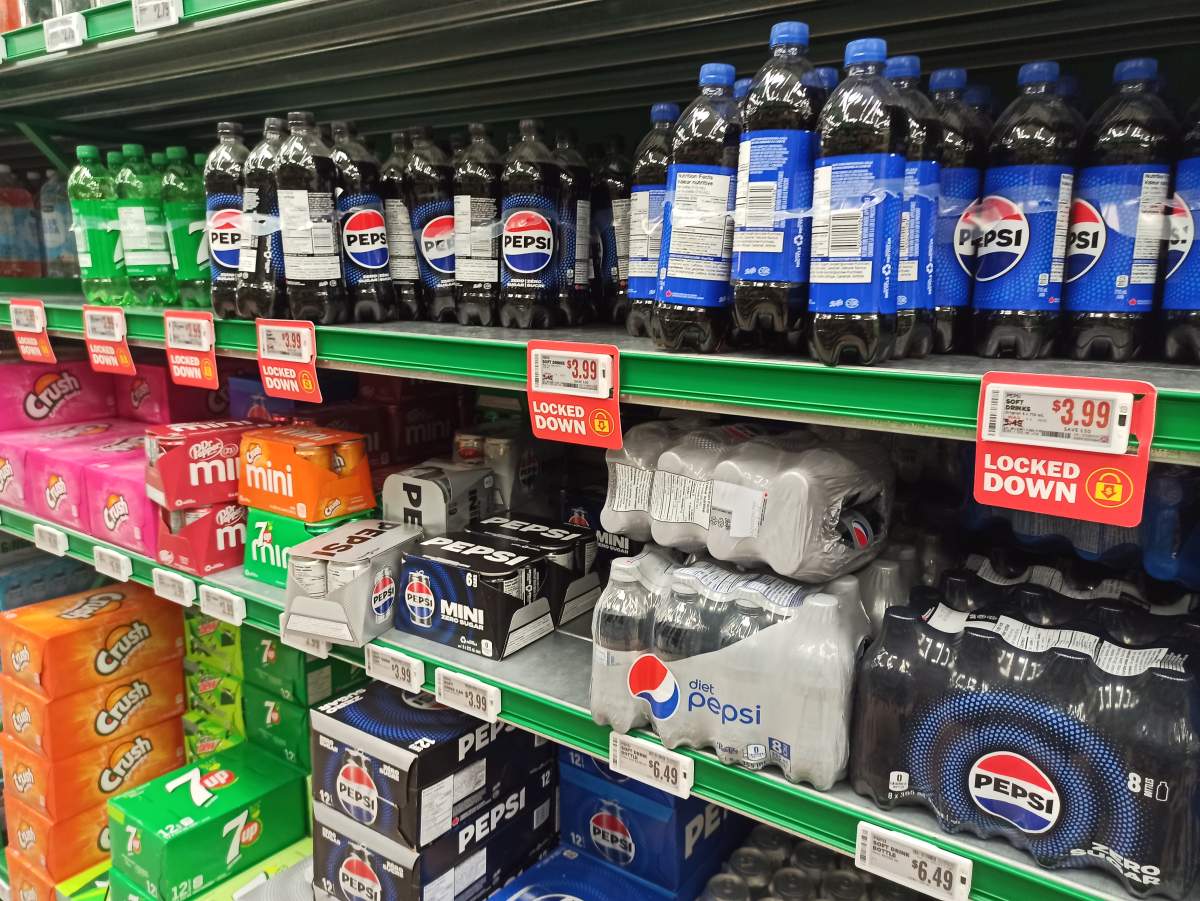Just a few months after a study suggested most Ontarians would like to see a deposit-return program for non-alcoholic beverages, the province says it’s dissolved a work group seeking a way to take back bottles and cans through retailers.

A spokesperson for the Ministry of the Environment, Conservation and Parks (MECP) confirmed the idea is no longer on the table and that participants discussing a potential deposit-return system (DRS) were told in early July there would be no further exploration of the matter.
“Following extensive consultation with stakeholders, it was made clear that creating a new, mandatory bottle deposit return system would add significant costs for small businesses and families,” Alex Catherwood said in a statement.
“Should producers and retailers wish to work collaboratively to implement a system that is both cost-effective and increases recycling rates, we would welcome that, however, we cannot support increased costs at a time when cost of living is so high.”
The action comes as the organization representing several large drink manufacturers recommended expanding the province’s current deposit system operated by The Beer Store, which offers bottle and can dropoffs for a refund from each container.
The 117-page report commissioned by the Canadian Beverage Association (CBA) suggested Ontario could see 90 per cent of containers like aluminum cans, drink boxes and plastic bottles returned properly if an incentive of roughly 10 cents was added.
Eunomia’s research drew from other DRS programs across Canada and worldwide and revealed that a net cost of around $190 million annually could be feasible and potentially funded through the sale of recovered beverage containers, unclaimed deposits and producer fees.
The deposit-return scenarios theoretically reduced litter and “reincorporated” recycled materials into new beverage bottles, cans and cartons, the research says.
CBA president Krista Scaldwell also referred to an Abacus Data poll in March, ordered by advocates of Environmental Defence, which showed support was up five per cent year over year to 81 per cent in favour of some sort of return system to manage empties.

Get breaking National news
“Recent polling shows that more than 80 per cent of Ontarians want a deposit system for both alcohol and non-alcoholic beverage containers,” Scaldwell said.
“Ontario can no longer remain an outlier in Canada with half of the non-alcoholic beverage containers sold in the province each year not being collected for recycling, going to landfill or being littered in the environment.”
The province recently put the responsibility of recycling on product manufacturers, requiring 75 per cent of all non-alcoholic beverage containers to be renewed through the private sector by 2026, and up to 80 per cent by 2030.
That likely means producers would have to invest in new infrastructure and get a handle on how empties are collected across Ontario’s towns and cities.
It’s estimated that 38 per cent of plastic beverage bottles sold across Canada are purchased in Ontario, but the province has the lowest non-alcoholic beverage container recovery rate in the country at just 51 per cent.
Ontario and Manitoba are the only two provinces in Canada that don’t have a deposit-return system for non-alcoholic beverage containers.
Currently, recycling costs in Ontario are shared by the producers and the municipalities.
MECP spokesperson Gary Wheeler told Global News in May that the province had engaged representatives from the beverage, retail, waste collection and recycling industries and environmental organizations to re-examine deposit returns in Ontario.
The province appeared to be on course to create some sort of scheme despite the Recycle Everywhere initiative directed by the Canadian Beverage Container Recycling Association (CBCRA) shelving its search for a program, citing a need for government policy changes.
The association said fears over proposed fees of one to three cents on retailers being passed on to customers, along with store owners just not being on board with the concept generally, led to its demise.
“CBCRA has determined there is no viability to continue with the launch of Recycle Everywhere while the Ontario government adjusts the parameters for beverage container producer responsibility and explores a deposit return system for the recovery of non-alcoholic beverage containers,” CBCRA executive director Ken Friesen said in a statement last year.
Wheeler explained recycling costs associated with such containers currently check in at about a combined $170 million annually across the province’s municipalities.
Ashley Wallace, an associate director with Environmental Defence, insists the province prioritized “greed over public good” and that it bowed to pressure from the Retail Council of Canada (RCC), which represents grocers like Loblaws and Costco.
“This is a common-sense solution to the problem of bottles and cans littered in parks, along roadways and in our lakes,” Wallace said.
“Shame on the Ontario government for such a betrayal of the public interest.”
A spokesperson for the RCC supported the Ford government’s stance in “moving away from a return-to-retail recycling system.”
The RCC’s Michelle Wasylyshen suggests a 10-cent deposit on beverage containers along with a recycling cost per container, which drink buyers consumers wouldn’t get back, equates to more cost burdens on consumers.
“Put another way, a 40-pack of water bottles in British Columbia costs an extra $5.60 in deposits and container recycling fees than a similar product in Ontario,” Wasylyshen said.
“In short, we applaud the government’s approach because it avoids cost to customers, while still holding companies to high targets.”
An executive with the group that represents some 7,000 independent grocery stores across Canada concurred with the RCC’s stance.
The senior vice-president of the Canadian Federation of Independent Grocers (CFIG) believes issues related to the square footage of member outlets and money needed for infrastructure upgrades could also be prohibitive.
“Where do these bottles and containers go? What part of the store do we set aside for these recycled materials? What products come out of the store to make room for storing these?” the CFIG’s Gary Sands said.






Comments
Want to discuss? Please read our Commenting Policy first.